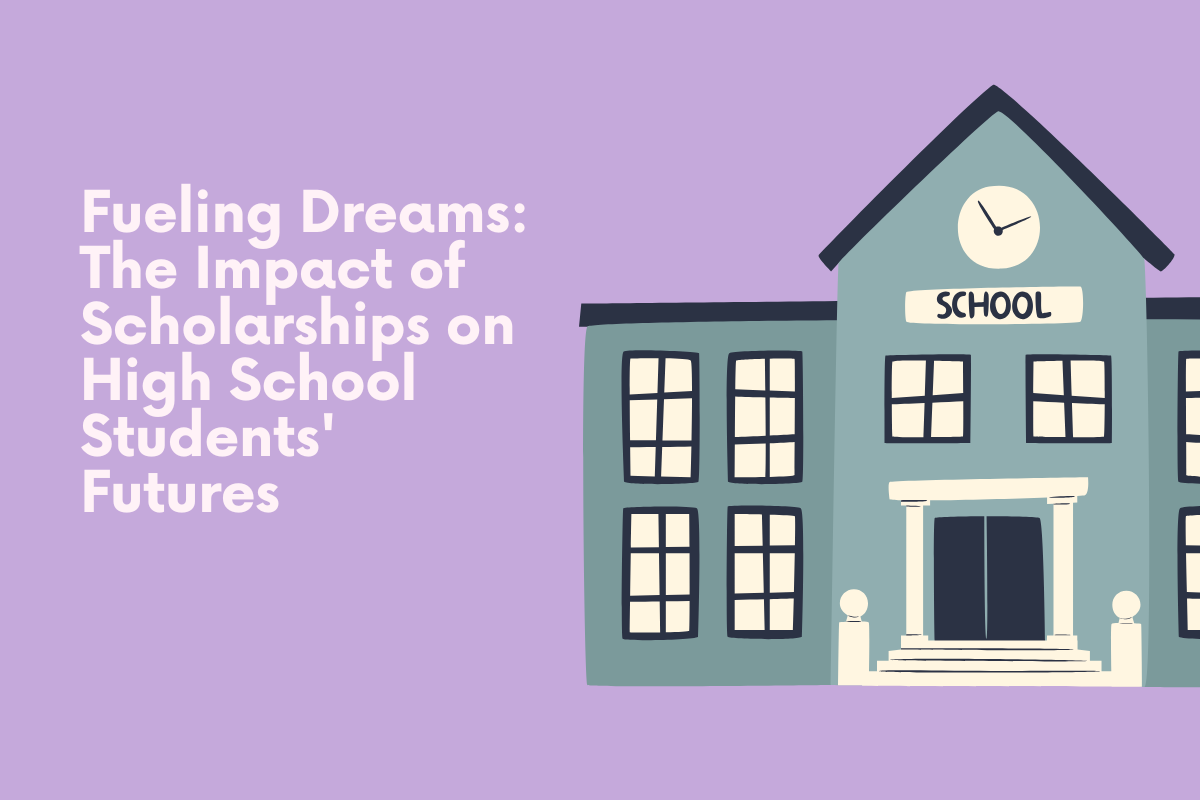As the cap and gown season approaches, the importance of scholarships in shaping the futures of high school students cannot be overemphasized. Scholarships not only offer financial relief but also serve as a beacon of hope and recognition for young individuals eager to embark on higher education journeys. They are pivotal in nurturing the aspirations of students who display potential but lack the resources to pursue their dreams. As these scholarships open doors to new opportunities, they also empower students to aim for loftier educational and career objectives. Below, we delve into the far-reaching implications that scholarships have on student aspirations, access to education, career advancement, psychological well-being, and long-term socioeconomic mobility.
The Transformative Power of Scholarships on Student Aspirations
Scholarships have a profound impact on the aspirations of high school students. They do more than alleviate the financial strain of post-secondary education; they instill a sense of achievement and possibility. The recognition that comes with winning a scholarship can significantly boost a student's confidence and motivation, encouraging them to set higher academic and career goals.
This transformative power is especially evident in students from underserved communities, where scholarships might be the decisive factor in a student's decision to attend college. For students who have shown dedication and excellence, scholarships acknowledge their hard work and inspire them to continue striving for excellence in their academic pursuits. The introduction of high school scholarships to students can be a critical turning point.
Finally, the availability of scholarships creates a virtuous cycle, where current recipients are often motivated to give back, either through mentorship or by establishing their scholarships in the future, perpetuating the cycle of support and ambition.
Bridging the Gap: Scholarships and Access To Higher Education
Scholarships play a crucial role in democratizing access to higher education. They serve as a bridge for students who might otherwise be unable to afford college, ensuring that financial barriers do not hinder academic potential or career aspirations. Scholarships particularly benefit those in lower-income brackets, creating a more equitable educational landscape.
Awareness and assistance in applying for these scholarships can make the difference between a student pursuing higher education or foregoing it completely. Schools and educational programs that prioritize scholarship information and preparation can have a lasting impact on their students' futures.
Additionally, scholarships that cover more than just tuition—such as those including stipends for housing, food, and other essentials—can profoundly enhance a student's college experience. They allow for a greater focus on studies and extracurricular involvement, which can be essential to both personal growth and academic success.
Scholarships as a Springboard for Career Advancement

Scholarships are not only a gateway to higher education but also a springboard for career advancement. By removing financial obstacles, scholarships enable high school graduates to pursue degrees in their chosen fields, setting them on the path to successful careers. Students are often able to attend more prestigious institutions, which can provide valuable networks and opportunities.
In some cases, scholarships come with internships or mentorships, offering students hands-on experience in their professional fields. These opportunities are invaluable in building a student's resume and can make them more competitive in the job market after graduation. Mentorships also offer guidance and professional insights that are often pivotal in shaping a student's career trajectory.
The Psychological Impact of Scholarships on High School Students

The receipt of a scholarship can have a significant psychological impact on high school students, influencing their self-esteem and mental well-being. As scholarships often come with a sense of prestige and recognition, they can positively affirm a student's self-worth and potential, which is critical during the formative years of adolescence.
Scholarships can also act as a stress reliever by providing financial peace of mind. The worry over how to fund higher education can weigh heavily on students and their families, potentially distracting from academic focus and causing undue anxiety. When this worry is lifted, students can channel their energy towards their studies and personal development.
Recognition through scholarships can also create a ripple effect, encouraging fellow students to strive for academic excellence and apply for scholarships themselves. This positive reinforcement loop can uplift the overall morale and drive within a school or community, fostering a healthy, achievement-oriented environment.
Scholarships serve as a cornerstone for academic success, career readiness, and long-term socioeconomic improvement. By enabling access to higher education, they allow aspiring students to reach for their dreams and build futures of their own making. The positive ripple effects of scholarship support extend far beyond the individuals who receive them, touching families, communities, and society at large.





.png)